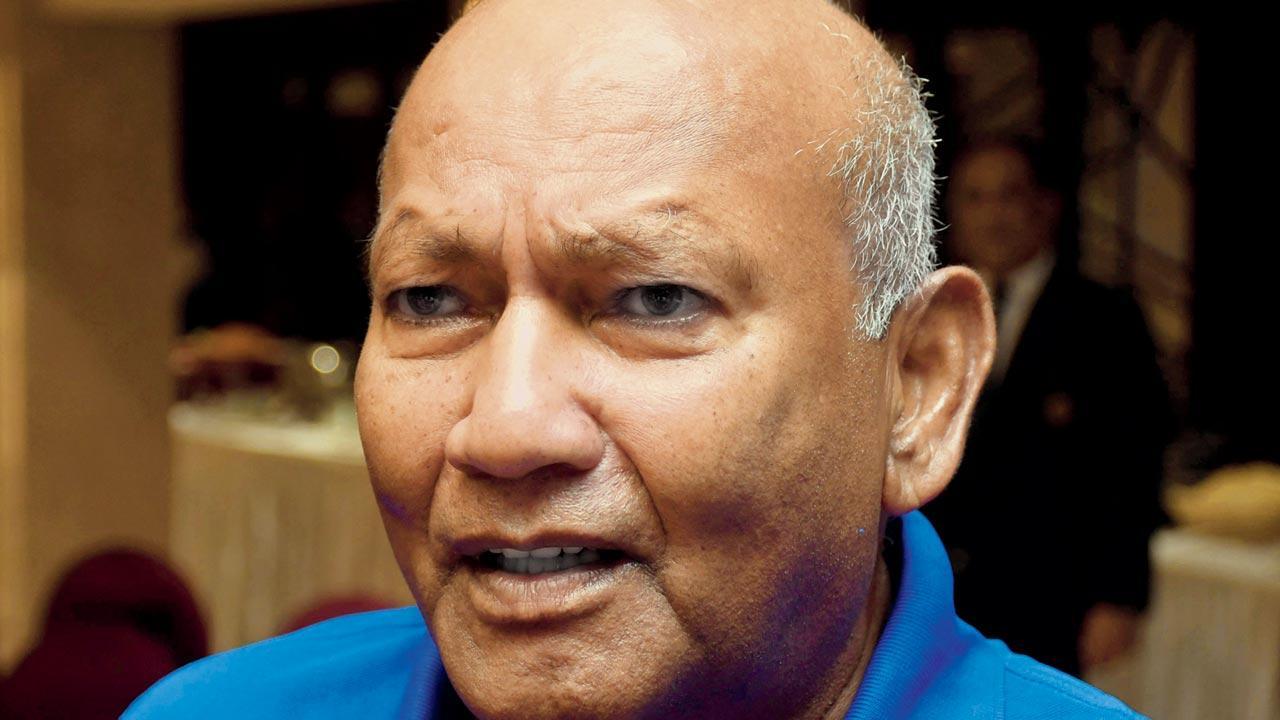We must all come together now and put resources together. As a past player, it hurts. We all are hoping to see WI cricket strong again,” Kallicharran told mid-day when asked whether the blame for the current state of affairs should be attributed to the various T20 leagues

Former West Indies captain Alvin Kallicharran during an event at CCI yesterday. Pic/Ashish Raje
Former West Indies captain Alvin Kallicharran, was at the CK Nayudu Hall at the Cricket Club of India on Monday afternoon, discussing the impact of T20 cricket and why the longer format of the game—Test cricket needs to survive.
ADVERTISEMENT
He had just launched a 24x7 cricket programme for the Omtex ICWC Cricket Institute.
Suddenly, news came in about two-time champions West Indies losing to Scotland by 42 runs in a T20 World Cup game at Hobart. Kallicharran, 73, who stays in the USA and is involved in coaching youngsters, was a part of Clive Lloyd’s World Cup-winning teams in 1975 and 1979. “It does hurt when you see the demise. I don’t know the structure [in WI cricket] at the moment—how they pick teams or who is playing. If they focus a little bit more on West Indies cricket, we will have a better team.
Also Read : Soumya Sarkar, Shoriful Islam included in Bangladesh T20 World Cup squad
We must all come together now and put resources together. As a past player, it hurts. We all are hoping to see WI cricket strong again,” Kallicharran told mid-day when asked whether the blame for the current state of affairs should be attributed to the various T20 leagues.
The left-handed great, who was an integral part of the dominant West Indies team of the 1970s, featured in 66 Tests and 31 ODIs and scored 4,399 and 826 ODI runs respectively. He reckoned that to replace players like Clive Lloyd, Vivian Richards, Andy Roberts, Michael Holding and Gordon Greenidge was a tough task and that created a big vacuum. “Then Courtney Walsh, Curtly Ambrose and Brian Lara came on the scene and after that, it was empty. In the future, we can only hope, because when West Indies cricket is healthy, world cricket is healthy. Everybody wants to see a [strong] West Indian team, so we are hoping,” he said.
When asked about the steps needed to be taken to strengthen WI cricket, he said: “Start to win. We have to create [the atmosphere]. Grassroot cricket has got to be strong. And if that is strong, the club level will be strong. And if the club level is strong, the national level gets strong. And if the national level is strong, West Indies cricket will be strong. We have to close those gaps.”
 Subscribe today by clicking the link and stay updated with the latest news!" Click here!
Subscribe today by clicking the link and stay updated with the latest news!" Click here!







